We challenge the guideline of avoiding having food while giving birth and answer the question can I eat during labor and delivery.
So I may be making some assumptions, but I think most moms would agree- labor and delivery is no small feat. Whether it lasts 10 hours or 48 hours, labor is typically a marathon, especially for first time moms. Historically, it was suggested that women avoid having food while giving birth, prompting most OB’s to continue to restrict eating in the hospital. But while I was at my prenatal class, another fellow mom-to-be brought up the common question, “can I eat during labor and delivery?” Why or why not? This question has been a source of recent debates amongst nurses, obstetricians, dietitians and anesthesiologists. Is it time for a new recommendation and practice? Let’s look at the evidence.
Why Can’t I Eat During Labor and Delivery?
The guideline of avoiding having food while giving birth was based on research from over 70 years ago. Researchers in the 1940’s found that women who ate and drank more than just ice chips while in labor were at risk for gastric aspiration (inhaling stomach contents) when they were put under general anesthesia (total loss of consciousness). Similar to during other medical procedures where general anesthesia is used, there is a greater risk for vomiting because all of our muscles are relaxed and it is difficult for the body to keep stomach contents down. These recommendations may have made sense back in the day when anesthesia was more commonly used during child birth, however today general anesthesia is very rarely used during childbirth. Instead it is more common to have a local anesthesia (partial numbing of the body) through epidurals.
Okay but back to the point about why it’s commonly thought you can’t eat during labor and delivery. There has been no solid evidence that avoiding food intake during labor is protective against aspiration or other negative outcomes for mother and child. Research presented to the American Society of Anesthesiologists in 2015 examined 385 studies and found only 1 case of aspiration between 2003- 2015 in what was considered a high-risk delivery. Advances in labor practices and anesthesia demonstrates that the risk for aspiration is almost non-existent compared to the slightly higher prevalence in the earlier 1900’s.
Aside from aspiration, it has been suggested from some research that the consumption of large amounts of food and fluid during birth have led to more vomiting. However, this finding is contradicted by other researchers and the evidence is inconclusive.
So then Can I Eat During Labor and Delivery Now!??
Although it looks like there is very little to having food while giving birth, eating might be the last thing on your mind. It has been suggested that there is neither any harm nor benefit to upping your food intake in childbirth. One study found that women who had freedom to choose what to eat had an average 16-minute shorter labor period than those who were restricted to ice chips. Um, YESS!! However, OBVIOUSLY this was merely a correlation and it can’t be said that the increased food intake caused shorter labor. Most women were more satisfied with their birth experiences when they had free choice of what to eat during labor and delivery, because hey, who doesn’t like choice. Generally, when given the choice, women tended to eat less as labor progressed. That probably makes sense because you’re a wee bit busy, and hunger is the least painful experience you can feel when you compare it to the watermelon coming out of your lady parts.
But don’t I need energy to push?!
Though there has been little research done on what the exact energy needs are during labor and delivery, it is suggested that the average woman has the same caloric needs as a marathon runner during this time.
When we don’t consume energy (aka. calories) during times of immense calorie burning, we deplete the body’s energy stores. During labor, many muscles in the abdominal region go through periods of contractions, using up a hell of a lot of body fuel. The most readily available source of energy for the muscles is glucose, and when glucose in the bloodstream gets used up, we use the storage form of glucose, called glycogen, for fuel. After a long period of strenuous activity where glucose and glycogen stores start to get used up with no food to regenerate these supplies, the body goes into a metabolic process called ketosis. Ketosis is the production of ketones which lead to an increased acidity in mother and fetal blood. It may be a trendy weight loss diet right now, but research suggests that higher than normal blood acidity when giving birth can lead to a longer labor. In addition to this, ketosis can also lead to nausea, vomiting and headaches, particularly if you’re not used to that state. We’ve gone into lots of detail on the pros and cons of ketosis here!
What are the Best Snacks to Eat During Labor and Delivery?
Women tend to feel best when they eat small amounts of food and liquid at a single time during labor. It is best to avoid foods that are extremely fatty or fibrous that can cause stomach upset on their own because nausea is already a common response to pain. As mentioned, since glucose is the body’s most readily accessible source of energy, carbohydrate rich foods are best. Many women prefer cold foods as labor is usually a pretty sweaty process. Think cold watermelon, cold smoothies, bananas, dried fruit, dates, juice, popsicles or low fat chocolate milk.
Often, women choose to drink sports drinks to get liquids and carbohydrates together at the same time. Research suggests that having sports drinks can reduce maternal ketosis by providing calories in the form of sugar (carbohydrates). Focus on types carbohydrates that provide a slow release of energy like whole grains from foods such as granola or whole grain crackers. It is best to eat these slow release carbs in the early stages of labor so they can provide lasting energy to the later stages. Foods with simpler sugars like fruit and sugary drinks release a quicker short burst of energy which can be helpful to give you an energy hit without making you too full or getting your blood sugar back up.
As you get further through labor, your unsettled stomach might not want anything to do with food, but this is when you need the energy the most so make sure you eat lots early on. Bring a variety of different foods because you never know what might save the day. Aside from carbohydrate rich foods, don’t forget to hydrate!
Bottom Line
With these recommendations in mind, remember that every woman is different! Be sure to pack your hospital bag with lots of snack options because you never know what is going to help you in that moment. Good luck to all my mommas (and eek, good luck to me!!)
Now, I want to know, did you eat during labor and delivery?
What snacks and foods worked best for you?
Contribution by RD2B Abi Sims

Abbey Sharp is a Registered Dietitian (RD), regulated by the Ontario College of Dietitians. She is a mom, YouTuber, Blogger, award winning cookbook author, media coach specializing in food and nutrition influencers, and a frequent contributor to national publications like Healthline and on national broadcast TV shows.



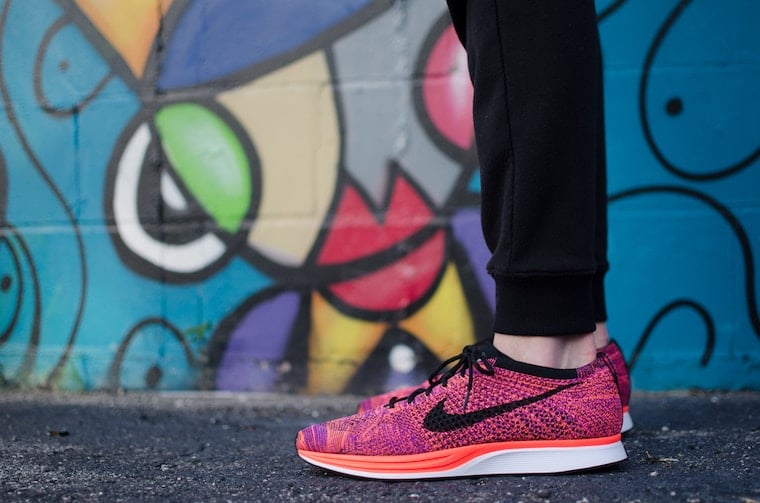
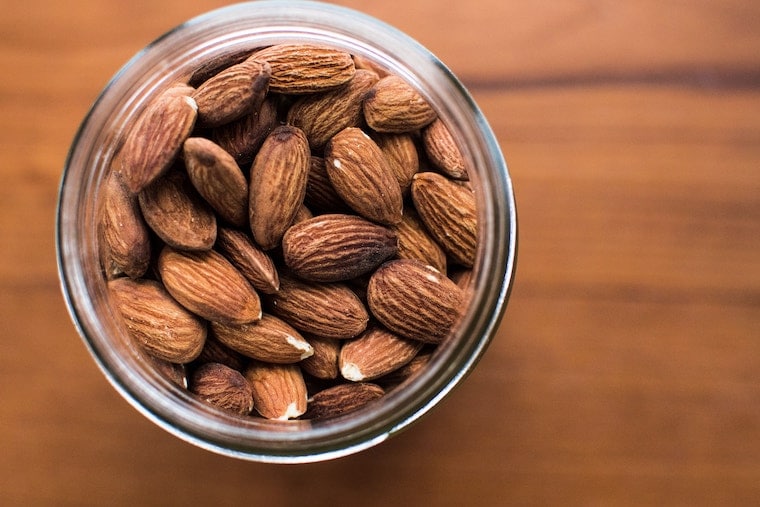
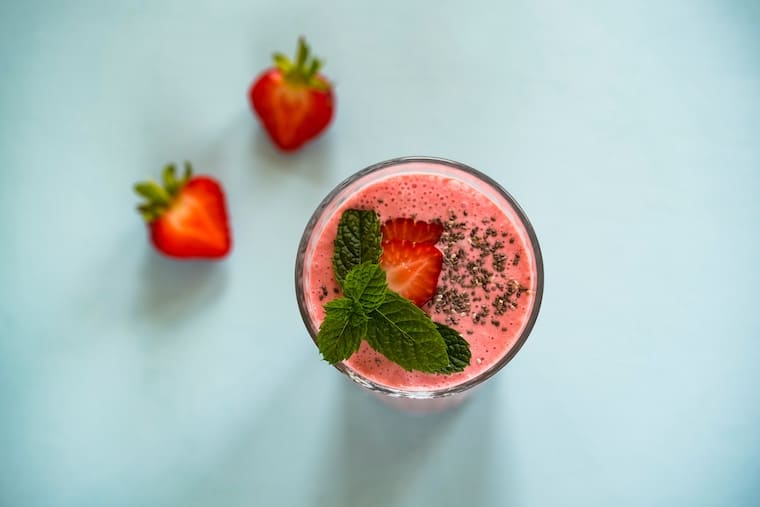
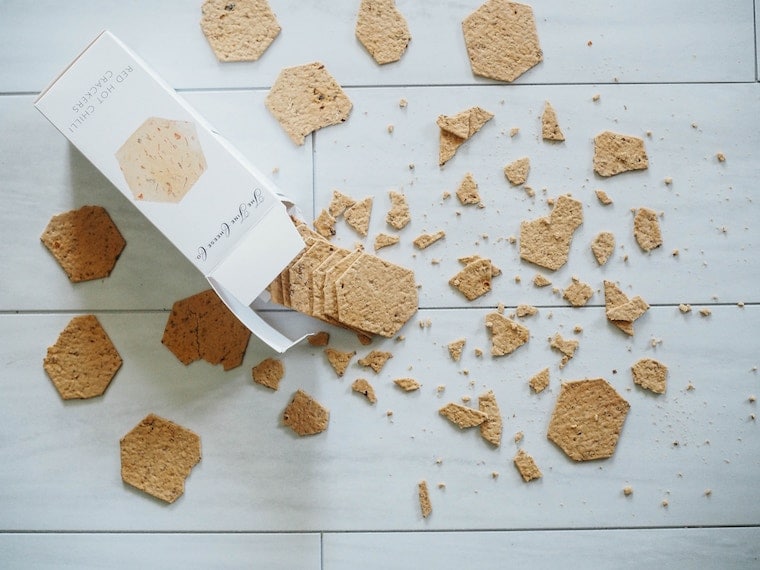
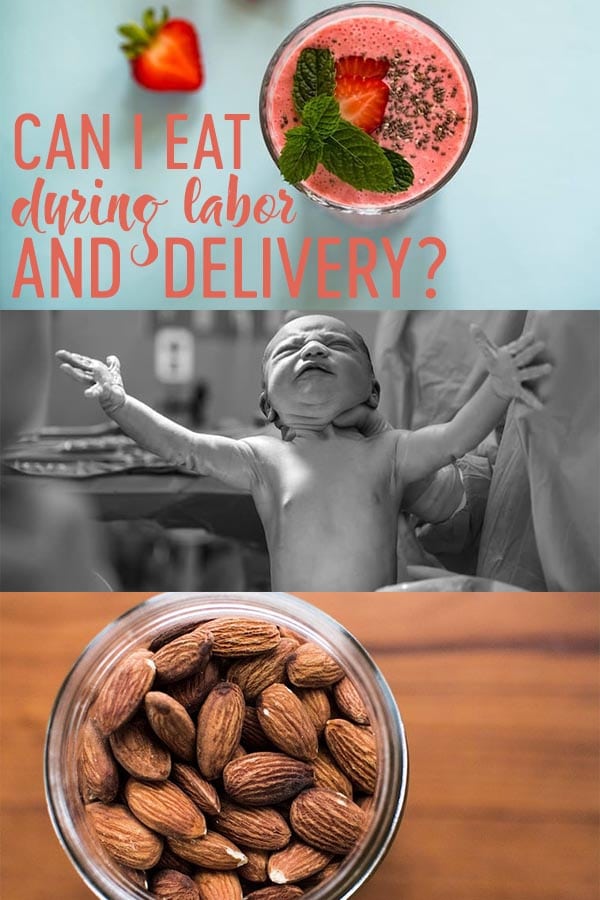



Kristen says
I ate through my whole induced labour, even after the epidural, even though I wasn’t supposed to. Best decision ever. ????
Abbey Sharp says
Hahah YES! Love it
Julie @ Running in a Skirt says
Such a good post. I can’t imagine not eating for that long- I get hangry and sick when I don’t eat. It’s roughhhh!
Abbey Sharp says
Right! Need food!
Natalie says
This post is so informative Abbey. If ONLY I knew all this before I had my baby boy. I was so unprepared and clueless. I can’t wait to share this post with my pregnant friends.
Abbey Sharp says
Yes! I hope they find it helpful!
Chrissy says
I didn’t eat during labor, but I was lucky that mine was relatively short – so I really only skipped breakfast. But man, once my son was born – I was ravenous and ate the meal they brought up soooo quick, lol.
Abbey Sharp says
Yes! I bet!
Lucy Edwards says
Interesting! Not something I’ve considered before, as I don’t have children, but I imagine I would get pretty hungry if the labour was dragging on for hours!
Abbey Sharp says
Yes! You definitely do
Jessica Levinson says
Great job gathering the various research on this topic! I would definitely agree to pack the hospital bag with plenty of snacks so you’re satisfied and ready when it comes time to give birth.
Abbey Sharp says
Yes! This lady always needs snacks!
Rachel says
I was told to stay home as long as possible so I could eat and be free to do as I pleased. I was never hungry when I was in labor so it ended up being completely irrelevant!
Abbey Sharp says
That’s great!
Elysia says
Thanks for breaking down the latest science once again! I wish I could’ve eaten something, but I went into labour in the middle of the night and it went so fast that I didn’t have time to eat, even though I brought plenty of snacks. By the time I had the baby I was starving!! Unfortunately there’s not a whole lot of time to eat when you’re pushing out a baby haha.
Abbey Sharp says
haha yeah I hear ya! Thanks love
Deborah @ Confessions of mother runner says
It’s so interesting how much things have changed in the last 20 years!
Abbey Sharp says
Yeah it’s crazy! We’ve come so far!
Carrie A Groff says
Wow! I’ve never had kids so I had no idea this was even a “thing”. The way I get “hangry” I wouldn’t want them to tell me I couldn’t eat if I was hungry lol. I love to see changes happening like this.
Abbey Sharp says
haha right! That’s how I feel.
Mikki says
I remember giving birth.. over 24 years ago (ugh.. am I that old) and I was NOT allowed to eat. With my first child I was in labor for over 20 hours and I was STARVING..
Glad to hear they are changing things up and allowing women to snack.
Abbey Sharp says
man that sounds awful! Yes, it’s about time!!
Meghan says
Fellow RDN here. I drank Ensure Clear during labor with both of my boys and although I was in crazy pain, my energy was great throughout (esp with 1st babe who took his sweet time)!
Meghan says
ETA It has both protein and carbs (not affiliated with the company at all, just used and liked the product)
Abbey Sharp says
Makes a huge difference!